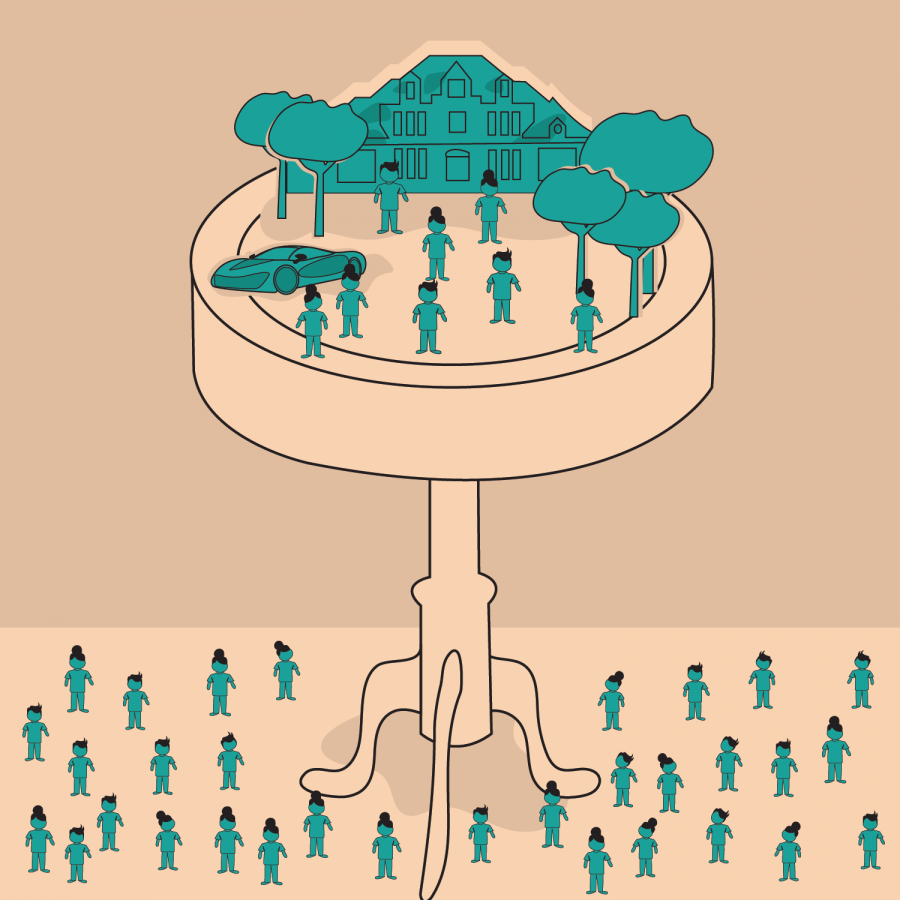Politics are much more than ‘just politics’
September 29, 2018
Our society is divided. We are stratified by income and privileged based on skin color; pretending otherwise is a sign of ignorance or a ploy to maintain the status quo.
Viewing politics as ‘just politics’ is no longer applicable. Politics was never just politics: the decisions the American government made in its hundreds of years of existence have consistently and unabashedly benefited the white upper class by pushing down everyone else. The only people who have ever been able to afford to take politics as ‘just politics’ are those who remain unharmed by any change in policy.
Nobody whose child was taken away at the border or whose father was gunned down can take politics as just politics. Nobody living off of food stamps or disability, who depends on free lunch at schools to feed their children, can take cuts in services necessary for their existence as just politics.
There’s an idea permeating the upper echelons of society — those below them have done something to get there. There’s an assumption that everyone has the opportunity to be well-off, healthy and happy, if only they worked hard enough for it — that the homeless man on the street is homeless because of some flaw in his character, not because of the very circumstances of his birth and existence in a society with all the cards stacked against him.
Some might say there are exceptions. There’s frauds exploiting food stamps and stealing taxpayer dollars and drug addicts lying through their teeth for cash. Some refugees are poisoned Skittles, and maybe there are some weed dealers who really do deserve to be in prison for life.
Get The Daily Illini in your inbox!
Those exceptions exist, yes. But there are Congressional candidates who openly support pedophilia and a U.S. Attorney General once deemed too racist to be a judge, so it is not only the poor and the powerless of whom we should require extreme vetting, and it is not those who are disenfranchised, searching for a home, who are the ones seeking to destroy our values. Most of those attacks come from within, from Americans themselves.
We tend to endorse the principle that every opinion, every voice should be given time and consideration. Every opinion should be taken seriously, each viewpoint equally viable. That’s good practice in an academic setting, but in the real world, especially in the world we live in today, the idea that every voice has something important to say is not just absurdly idealistic, but actively harmful.
Giving people whose opinions and actions are overtly immoral a platform to express those views inherently supports them. It gives the people who hold those views confidence that they have a community, that their extremely flawed way of thinking is acceptable.
It’s important to listen to all sides of a debate. It’s also important to recognize intellectual discourse from violent fear-mongering, facts from blatant fiction. The distinction is difficult to ascertain when it’s hidden behind clever phrasing and passionate rhetoric on every side. It’s easy to become ensnared in your own bubble, but if we don’t take the responsibility to separate our biases from objectivity, we will simply drive our divisions deeper.
Sandhya is a sophomore in LAS.







